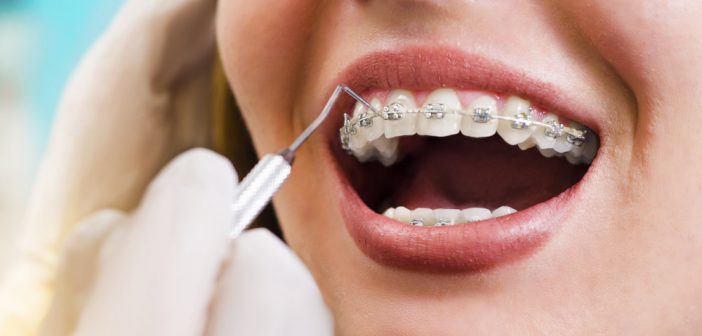It’s estimated that 3.9 million American children are orthodontic patients. With orthodontic treatment so common, it may seem like crooked teeth should be a thing of the past. But the truth is that this phenomenon is relatively recent in human history — more and more, our jaws just don’t have room for our teeth!
But what causes an underdeveloped jaw? How do you recognize it? And does it have downstream health impacts?
An underdeveloped jaw does carry downstream health impacts, but there are steps you can take to avoid them. Keep reading to learn more.
Hunter-gatherers didn’t need braces
Richard Klein, the world’s expert on the human fossil record, once said, “I’ve never seen a hunter-gatherer skull with crooked teeth.”
So what causes underdeveloped jaws and, by extension, crooked teeth? Think about our modern lifestyle in comparison with our hunter-gatherer ancestors: We cut our food into small pieces; they tore meat with their teeth. We live in confined spaces, breathing through our mouths due to allergies; they roamed the great outdoors, breathing in the fresh air. Our lifestyles encourage our jaws to stay small — too small to fully accommodate all of our teeth.
Sawing logs may be a warning
“The symptoms of the epidemic of smaller jaws are everywhere,” said Sandra Kahn, DDS, MSD, and Paul Ehrlich, PhD and Dentistry Today. “Adults are snoring. Teenagers are having their misnamed ‘wisdom’ teeth extracted, sometimes with traumatic results. And so many people now have obstructive sleep apnea (OSA).”
In children, an underdeveloped jaw might manifest itself through one of the following:
Mouth breathing
“Gummy” smiles
Trouble sleeping
Morning tiredness
Snoring
Inability to close mouth
Health impacts can show up downstream
Having an undersized jaw may be linked to some significant health problems, including hyperactivity, an increased risk of heart disease and sleep deprivation. And sleep deprivation, in turn, can lead to chronic depression, chronic pain, persistent headaches and heart disease, according to Vivos, the creator of a therapeutic protocol for sleep apnea. While having a small jaw doesn’t directly link to these things, it’s still worth exploring what a well-developed jaw can do to help avoid these issues.
There are solutions
Since lifestyle choices encourage smaller jaws, lifestyle choices also can help prevent them. Start young!
Encourage children to maintain proper oral posture: Lips closed, tongue on the palate and teeth lightly touching. In other words, remind children to keep their mouths closed when they’re not eating or talking.
Wean babies to foods that require chewing rather than to purees.
Reduce exposure to allergens.
Try breathing exercises that improve nose breathing and breathing efficiency.
Let your kids chew gum!
For adults, it may be worth a visit to your dentist or an ENT. If you’re experiencing jaw-related issues, you may be a candidate for sleep apnea treatment or other interventions.
According to experts in BioScience, “Unbiased sampling of skulls of industrialized and hunter-gatherer populations shows unambiguously that the former suffer a higher incidence of jaw problems.”
While there’s a lot that’s great about living in the 21st century, underdeveloped jaws are not one of them. Look out for signs and symptoms of an underdeveloped jaw and implement solutions to encourage positive health impacts, now and in the future.
A version of this article was published by The Daily Herald. It has been republished here with permission




